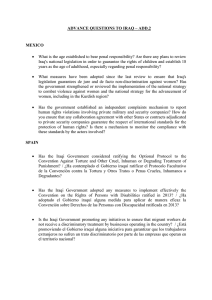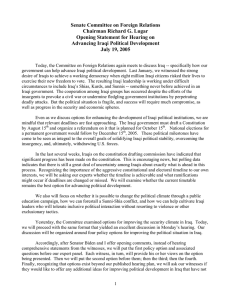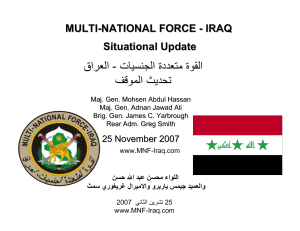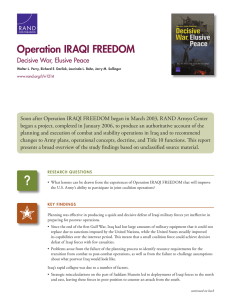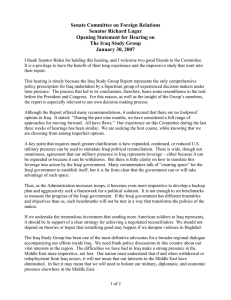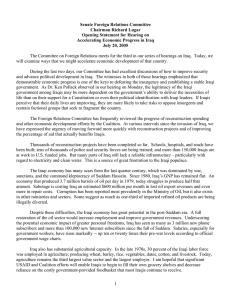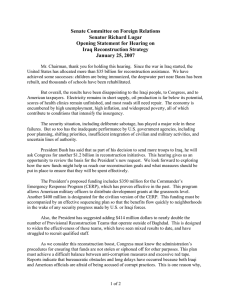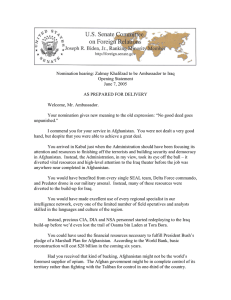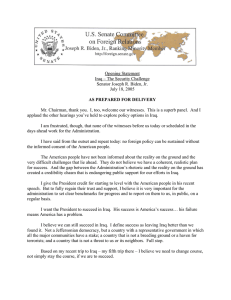CHAIRMAN HUNTER OPENING STATEMENT HOUSE ARMED SERVICES COMMITTEE DUNCAN HUNTER – CHAIRMAN
advertisement
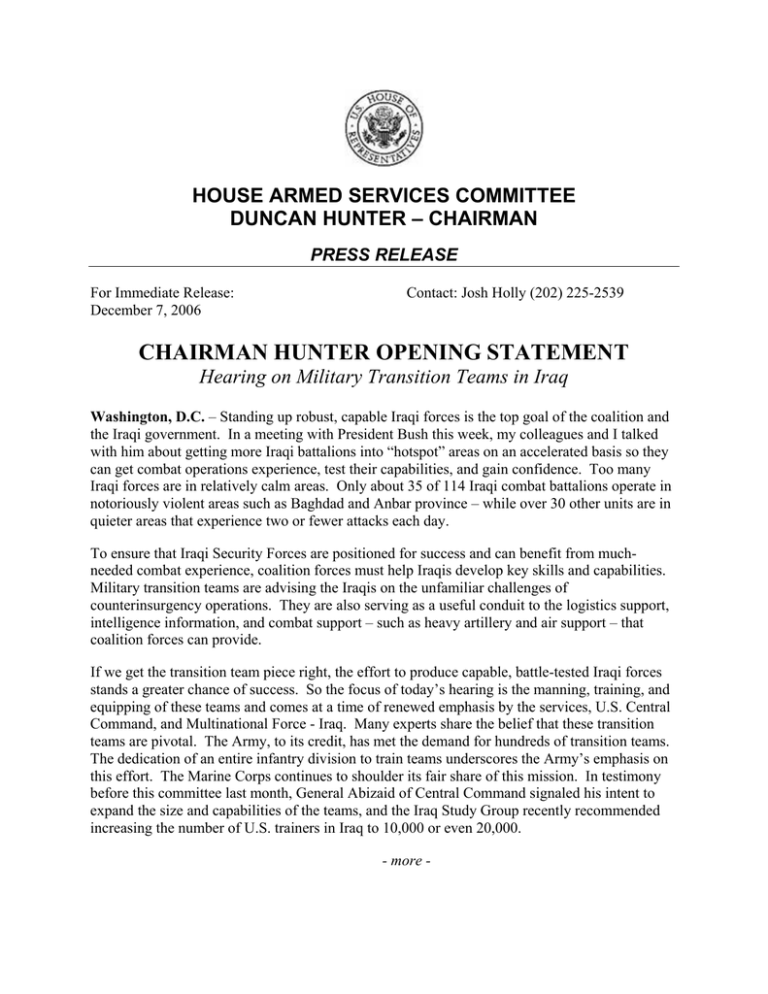
HOUSE ARMED SERVICES COMMITTEE DUNCAN HUNTER – CHAIRMAN PRESS RELEASE For Immediate Release: December 7, 2006 Contact: Josh Holly (202) 225-2539 CHAIRMAN HUNTER OPENING STATEMENT Hearing on Military Transition Teams in Iraq Washington, D.C. – Standing up robust, capable Iraqi forces is the top goal of the coalition and the Iraqi government. In a meeting with President Bush this week, my colleagues and I talked with him about getting more Iraqi battalions into “hotspot” areas on an accelerated basis so they can get combat operations experience, test their capabilities, and gain confidence. Too many Iraqi forces are in relatively calm areas. Only about 35 of 114 Iraqi combat battalions operate in notoriously violent areas such as Baghdad and Anbar province – while over 30 other units are in quieter areas that experience two or fewer attacks each day. To ensure that Iraqi Security Forces are positioned for success and can benefit from muchneeded combat experience, coalition forces must help Iraqis develop key skills and capabilities. Military transition teams are advising the Iraqis on the unfamiliar challenges of counterinsurgency operations. They are also serving as a useful conduit to the logistics support, intelligence information, and combat support – such as heavy artillery and air support – that coalition forces can provide. If we get the transition team piece right, the effort to produce capable, battle-tested Iraqi forces stands a greater chance of success. So the focus of today’s hearing is the manning, training, and equipping of these teams and comes at a time of renewed emphasis by the services, U.S. Central Command, and Multinational Force - Iraq. Many experts share the belief that these transition teams are pivotal. The Army, to its credit, has met the demand for hundreds of transition teams. The dedication of an entire infantry division to train teams underscores the Army’s emphasis on this effort. The Marine Corps continues to shoulder its fair share of this mission. In testimony before this committee last month, General Abizaid of Central Command signaled his intent to expand the size and capabilities of the teams, and the Iraq Study Group recently recommended increasing the number of U.S. trainers in Iraq to 10,000 or even 20,000. - more - During his confirmation hearing earlier this week, incoming Secretary of Defense Gates asked a crucial question: “If our focus is on training and bringing up the Iraqi army, do we have enough trainers to do that job in Iraq?” So, the question before the committee today is just that – how many transition teams are required, how many personnel and what skills do they need, and what training should they receive? This hearing comes at a good time to take stock of how the transition teams have evolved over the last two years and reevaluate how best to organize this endeavor in the future. Recent media reports indicate that some team members feel they are not receiving – or providing – the most relevant training or the right equipment. I hope the committee will hear how we can help you to strengthen the ability of the advisors to better train the Iraqi Security Forces. Only when we can successfully conclude such efforts can we be sure that the departure of American forces from the Iraq nation will not result in massive instability and violence. ### http://armedservices.house.gov/

